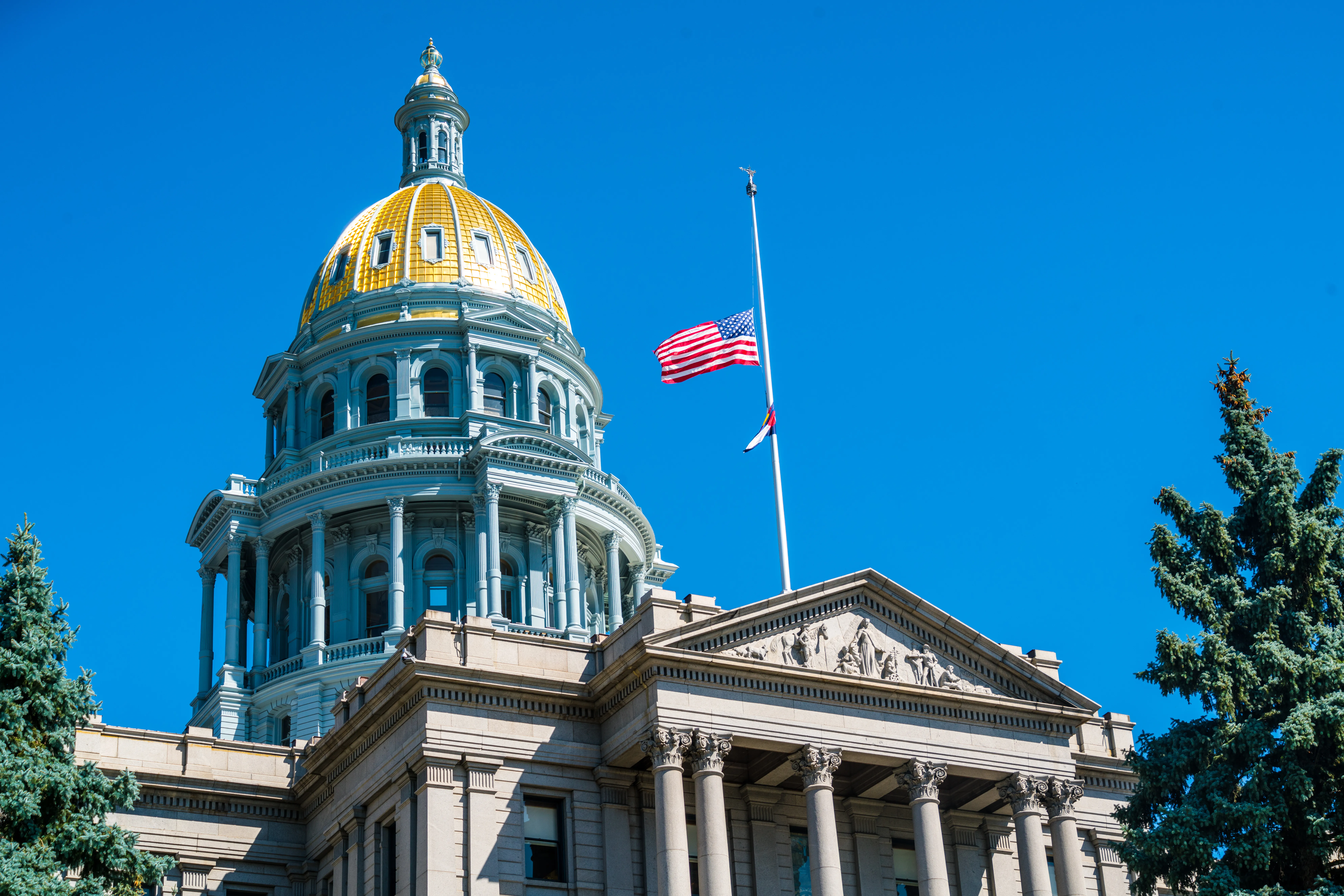
Daily Audio Newscast - August 23, 2024
News from around the nation.
Idaho city's 'non-sanctuary' status threatens most vulnerable, critics say; Trump uses a stretch of border wall and a pile of steel beams in Arizona to contrast with Democrats; Florida's hidden agenda: Developments in state parks spark public outcry New bill in Congress would improve end-of-life care.
Transcript
The Public News Service Daily Newscast, August 23rd, 2024.
I'm Mike Clifford.
Groups are warning now that an Idaho City's decision to declare itself a non-sanctuary city could have far-reaching implications.
More from our Eric Tegethoff.
The repercussions are still being felt from the decision by the city of Eagle near Boise in July.
Sanctuary cities limit their cooperation with the federal government on immigration laws.
The Eagle resolution says that the city will not provide services for people who are undocumented.
This could be especially harmful for vulnerable community members, such as those who have experienced domestic violence or sexual abuse.
Sarah Sheehan, a clinician with the Women's and Children's Alliance in Boise, says the resolution could prevent people from getting support.
It can create a lot of fear of seeking help from community services in non-sanctuary cities.
Eagle City Council passed the resolution on a consent agenda without public comment.
It says the goal of the resolution is maintaining the safety, well-being, and resources of its residents.
Critics are urging the council to rescind it.
And on a dirt road between the shrub-dotted hills of Arizona, Donald Trump used a stretch of wall and a pile of steel beams to draw a visual contrast between his approach to securing the border and that of Democratic opponent Vice President Kamala Harris.
Trump brought along grieving mothers, a sheriff of a local county, and the head of the Border Patrol Union to echo his tough-on-the-border security message.
The AP reports the visit was the fourth in a series of events held in battleground states this week to try to draw the focus away from the DNC's celebration of the Harris presidential nomination in Chicago.
Meantime, many Floridians online are expressing concern over the DeSantis administration's surprise proposal to add golf courses and lodges throughout the state's award-winning park system.
The initiative, which some argue could redefine Governor Ron DeSantis' conservation record, has ignited a firestorm of public backlash.
The proposed changes include building a golf course at Jonathan Dickinson State Park and constructing park lodges with 350-room capacities at Anastasia and Top Sail Hill Preserve State Parks.
Audubon, Florida, Executive Director Julie Raithmel expressed concern over the proposal's content and the expedited timeline for public input.
As it's happening so quickly, the announcement came out on Tuesday, and the public meetings available for comment are as quick as next Tuesday, during the workday when many Floridians won't be able to attend.
With just six days to review the sweeping park plans, the Florida Department of Environmental Protection will hold simultaneous in-person-only meetings across the state.
All meetings are set for Tuesday from 3 to 4 p.m.
I'm Tramell Gomes.
This is Public News Service.
Next to California, where a bill just introduced in the Congress would raise public awareness of issues surrounding end of life, including palliative care and hospice.
The Compassionate Care Act would establish guidelines for advanced care planning between health providers and patients.
Lisa Paul is a social worker from Torrance who guides families through hospice.
We live in a culture that is very avoidant of conversations on death and dying, and so public education around the importance of planning ahead will improve access so that everyday Americans know to ask for hospice and palliative care.
The bill would direct the government to develop education resources for providers, expand telehealth options, and facilitate a study on a national advanced care planning registry that would allow patients to transfer their advanced directives from state to state.
I'm Suzanne Potter.
A similar bill stalled in the House of Representatives in 2020 and never got a vote.
And concern is growing over PFAS, otherwise known as forever chemicals, and fertilizers made from human waste.
It's called biosolid fertilizer, and it's a billion dollar industry in the U.S.
The substance is often cheaper than other chemicals, and it saves cities money by keeping sewage out of landfills.
The problem is it smells really bad.
Sondra Trawick is a donkey farmer in central Oklahoma.
It's something so horrific and so nauseating that it makes your eyes water, it gives you an instant headache.
Some people just instantly throw up.
It's next level horrible.
Trawick's also concerned about the chemicals sometimes found in biosolids, which have been shown to harm the environment and human health.
More than 80 percent of Oklahoma's wastewater sludge ends up in crop fields.
This story was produced with original reporting from Ben Felder with Investigate Midwest.
I'm Will Waukee.
And finally from Roz Brown, a scientist who says he found extreme plutonium contamination in Los Alamos.
Over a 20 year period ending in 1963, liquid and often radioactive waste was dumped down the canyon. 60 years later, Dr. Michael Ketterer, a professor emeritus of chemistry and biochemistry at Northern Arizona University, presented his contamination findings to Nuclear Watch New Mexico.
He looked at water, soil and plant samples and believes those living nearby should follow his lead.
New Mexicans, you guys can do this too.
Your state needs a community instrument, not one run by the state or the locals or by DOE, one run by the community.
You can do this too.
Ketterer says the instrument would provide those downstream updated contamination readings.
I'm Roz Brown.
This is Mike Clifford.
Thank you for wrapping up your week with Public News Service.
Member and listener supported.
Hear us on great radio stations, your favorite podcast platform and find our trust indicators at publicnewsservice.org.
















